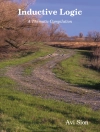Anthropologists have acted as experts and educators on the nature and ways of life of people worldwide, working to understand the human condition in broad comparative perspective. As a discipline, anthropology has often advocated — and even defended — the cultural integrity, authenticity, and autonomy of societies across the globe. Public anthropology today carries out the discipline’s original purpose, grounding theories in lived experience and placing empirical knowledge in deeper historical and comparative frameworks. This is a vitally important kind of anthropology that has the goal of improving the modern human condition by actively engaging with people to make changes through research, education, and political action.
Зміст
List of Illustrations
Introduction
Carl A. Maida and Sam Beck
Chapter 1. Community-Based Research Organizations: Co-constructing Public Knowledge and Bridging Knowledge/Action Communities through Participatory Action Research
Jean J. Schensul
Chapter 2. Crossing the Line: Participatory Action Research in a Museum Setting
Alaka Wali and Madeleine Tudor
Chapter 3. Monitoring the Commons: Giving “Voice” to Environmental Justice in Pacoima
Carl A. Maida
Chapter 4. Political-Ethical Dilemmas Participant Observed
Josiah Mc C. Heyman
Chapter 5. Public Anthropology and Structural Engagement: Making Ameliorating Social Inequality Our Primary Agenda
Merrill Singer
Chapter 6. Public Anthropology and the Transformation of Anthropological Research
Louise Lamphere
Chapter 7. Public Anthropology and Its Reception
Judith Goode
Chapter 8. Anthropology for Whom? Challenges and Prospects of Activist Scholarship
Angela Stuesse
Chapter 9. “We Are Plumbers of Democracy”: A Study of Aspirations to Inclusive Public Dialogues in Mexico and Its Repercussions
Raúl Acosta
Chapter 10. What Everybody Should Know about Nature-Culture: Anthropology in the Public Sphere and “The Two Cultures”
Thomas Hylland Eriksen
Chapter 11. Reimagining the Fragmented City/Citizen: Young People and Public Action in Rio de Janeiro
Udi Mandel Butler
Chapter 12. Urban Transitions: Graffiti Transformations
Sam Beck
Chapter 13. Recreating Community: New Housing for Amui Djor Residents
Tony Asare, Erika Mamley Osae, and Deborah Pellow
Notes on Contributors
Про автора
Carl A. Maida is Professor in the Institute of the Environment and Sustainability and Director of the Pre-College Science Education Program at the University of California, Los Angeles. His publications include Sustainability and Communities of Place (2007) and Pathways through Crisis: Urban Risk and Public Culture (2008).












